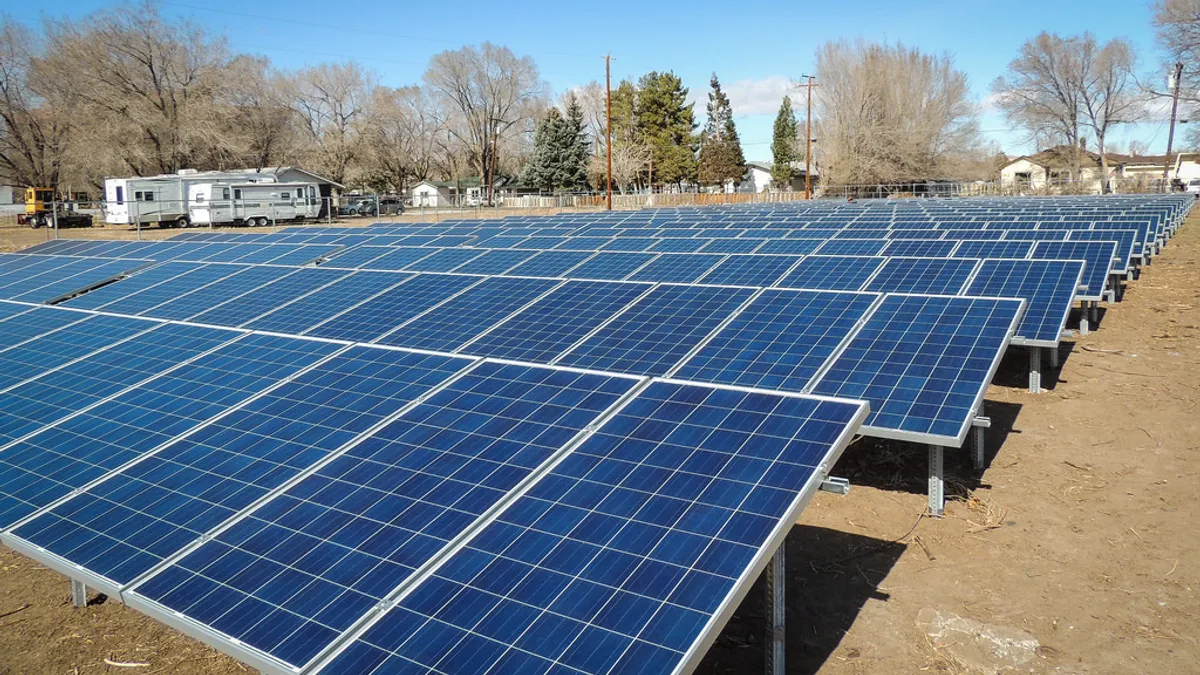Dive Brief:
- Xcel Energy, Minnesota’s dominant electricity provider, informed state regulators it will limit the size of community shared solar projects, called solar gardens, to no more than 1 MW per site and disallow developers from aggregating 1 MW projects at the same site.
- The utility filed a letter with the Minnesota Public Utilities Commission saying it will begin scaling back applications for co-located 1 MW projects. However, because of the commission’s past support for co-located projects, Xcel will accept them as long as they do not exceed the 1 MW limit.
- A spokesperson for the Minnesota Solar Energy Industries Association (MnSEIA) called Xcel’s filing “defiance of the PUC and defiance of state statute…” Xcel argues the projects need to be limited because costs associated with solar increase customers' utility bills 1% to 1.5%.
Dive Insight:
Of the 560 MW of applications to Xcel for community shared solar, some 80% are co-located projects, the utility reported. Eliminating them will leave the utility with 80 MW of project capacity.
Xcel has plans to develop 2,400 MW of solar capacity, including 700 MW of distributed rooftop and community solar. It is attempting to slow community solar growth because of concerns about costs and overloaded distribution system circuits.
Minnesota’s community solar law allows a customer to purchase up to 40% of a community project’s output. To protect larger customers’ access to solar, Xcel will not prohibit them from purchasing community solar shares from different solar projects.
The price might be too high for Xcel but reducing the program by 80% is not the way to rectify the problem, according to Institute for Local Self-Reliance policy expert and Minnesota solar law architect John Farrell. Farrell suggested that if Xcel used the Value of Solar tariff instead of the alternative applicable rate, it might have kept costs affordable.














